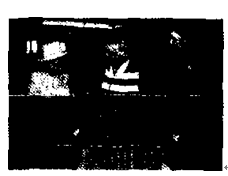题目内容
Want to stay away from colds? Put on a happy face.
Compared to unhappy people, those who are cheerful and relaxed are less likely to suffer from colds, according to a new study. It’s possible that being happy helps the body fight illnesses, say the researchers from New York University.
“It seems that positive feelings may reduce the danger of illness,” said the study’s chief researcher Sheldon Cohen.
In an earlier study, Cohen found that people who were cheerful and lively caught coughs and colds less often. People who showed feelings were also less likely to tell their doctors that they felt ill.
In this study, Cohen’s interviewed 193 adults every day for two weeks. During the interviews, the people told researchers about were given colds by doctors and had to stay alone in a room for six days.
The results showed that everyone in the study was equally likely to get ill. Buy for people who said they felt happy during the research period, their illness are less serious and lasted for a shorter time.
Cohen believes that when people experience positive feelings, their body may produce a chemical that helps fight illness and disease. So if you are worried abut your health, look on the bright side more often.
小题1: Which of the following was NOT a part of the study?
小题2: What did the study find?
小题3: According to Cohen, which of the following may help fight illness?
小题4:This passage is a/an .
小题5:What is the best title for this passage?
小题6:
Compared to unhappy people, those who are cheerful and relaxed are less likely to suffer from colds, according to a new study. It’s possible that being happy helps the body fight illnesses, say the researchers from New York University.
“It seems that positive feelings may reduce the danger of illness,” said the study’s chief researcher Sheldon Cohen.
In an earlier study, Cohen found that people who were cheerful and lively caught coughs and colds less often. People who showed feelings were also less likely to tell their doctors that they felt ill.
In this study, Cohen’s interviewed 193 adults every day for two weeks. During the interviews, the people told researchers about were given colds by doctors and had to stay alone in a room for six days.
The results showed that everyone in the study was equally likely to get ill. Buy for people who said they felt happy during the research period, their illness are less serious and lasted for a shorter time.
Cohen believes that when people experience positive feelings, their body may produce a chemical that helps fight illness and disease. So if you are worried abut your health, look on the bright side more often.
小题1: Which of the following was NOT a part of the study?
| A.People talked about their feelings every day. |
| B.People were kept alone for six days. |
| C.People were given colds by doctors. |
| D.People were made to feel unhappy. |
| A.People who felt happy never got ill. |
| B.People’s feelings didn’t influence their health. |
| C.People with good feelings became ill more easily. |
| D.People with positive feelings had less serious illnesses.. |
| A.Eating. |
| B.Crying. |
| C.Laughing. |
| D.Sleeping. |
| A.advertisement |
| B.newspaper report |
| C.story |
| D.scientist’s diary |
| A.Smiles can fight colds |
| B.Cause of colds found |
| C.The danger of colds |
| D.How people get sick |
小题1:D
小题1:D
小题1:C
小题1:B
小题1:A
小题1:推理判断题。第五段“…interviewed the people every day for two weeks…people told the researchers about the happy or bad feelings they had that day ”排除A;第六段提到“…the people were given colds by doctors and had to stay in a room for six days”排除B和C;D 文中没有涉及。
小题1:细节推理题。根据第七段“The results showed that…”可得出答案选D。
小题1:细节推理题。文中最后一段根据Cohen,…people experience positive feelings, their body may produce chemical that helps to fight illness and disease…故选C。
小题1:归纳推理题。本文如实讲述了纽约大学的一项调查,并非是广告,故事,日记。排除A,C,D。
小题1:综合推理题。根据全文内容,没有提及引起感冒的原因,感冒的危害以及人是这样生病的。排除B,C,D。

练习册系列答案
相关题目

